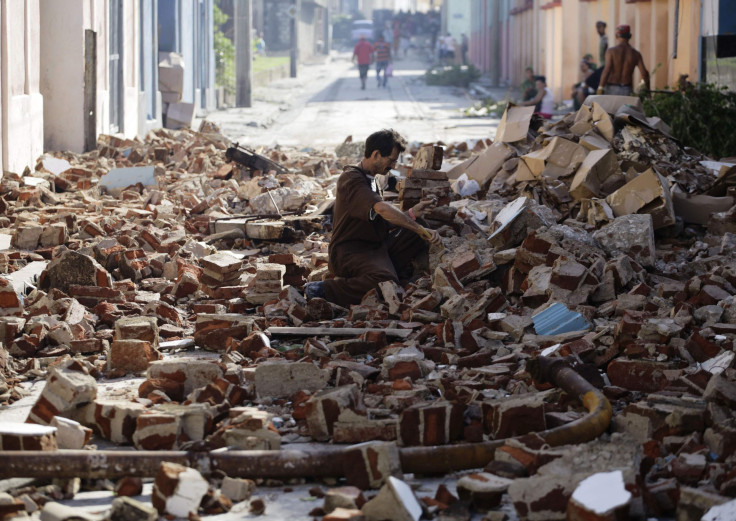Hurricane Sandy Death Toll Rises In Haiti As Residents Prepare To 'Die Hungry'

While the Eastern Seaboard of the United States braces for Hurricane Sandy, people in the Caribbean are still reeling from its effects.
The Associated Press reported that by Sunday morning the death toll in Haiti had risen to 65 people, although the Haitian government claimed only 51 deaths. While deaths have also been reported in Cuba, Jamaica, the Bahamas and Puerto Rico, the situation in Haiti is especially dire because an estimated 370,000 people are still living in shantytowns long after the January 2010 earthquake. The island nation has been pelted with heavy rain even as Sandy rose north through the Atlantic Ocean.
“This is a disaster of major proportions,” Prime Minister Laurent Lamothe told the AP. “The whole south is under water.”
Lamothe estimated the damages in the hundreds of millions of dollars, most of which stems from the lost crops, according to USA Today. Officials started their focus on a muddy river in Port-au-Prince, rising with the continued rainfall.
“If the river busts its banks, it’s going to create a lot of problems. It might kill a lot of people,” Seroine Pierre, 51, said. “If death comes, we’ll accept it. We’re suffering, we’re hungry, and we’re just going to die hungry.”
Dry space was a rare commodity as residents of the emergency shelters from 2010 were forced to move to safer ground. An estimated 17,800 people crammed in to 131 temporary shelters in an effort to safely ride out Hurricane Sandy and its effects.
One man in Jamaica was crushed to death by a boulder that fell onto his house while doctors trying to give care to isolated families were cut off by flood streams. Hundreds of families were homeless in Puerto Rico and almost 20,000 people were evacuated in the Dominican Republic when Sandy took down several bridges.
After hitting Jamaica as a Category 1 hurricane Sandy moved into Cuba early on Thursday as a Category 2. Thousands of homes collapsed and coffee, banana, bean and sugar crops were damaged throughout the region.
“It’s wet all my clothes, and all the children aren’t living well,” on Port-Au-Prince resident told USA Today. “We’re hungry. We haven’t received any food. If we had a shelter, that would be nice.”
© Copyright IBTimes 2024. All rights reserved.





















